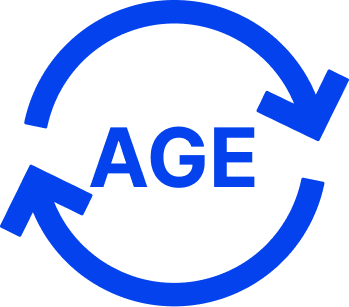California Homeschool Laws and Regulations
Californians interested in homeschooling should know the regulations and standards of the state. Our comprehensive overview of homeschooling in California gives you the information you need to get started.
Homeschooling in California Overview
Affidavit Required: Yes
4 Options for Homeschooling: Independent Study Program (ISP), Private School Satellite Program, Credentialed Tutor, Private School Affidavit
Subject or Curriculum Requirements: No for ISP, Yes for Private Options
Attendance Age Requirements: 6-18
Record-Keeping Requirements: Yes
Assessments or Evaluations Required: No
Proof of Immunization Required: No
Table of Contents
California Homeschooling Laws and Regulations
How to Start Homeschooling
Options for Homeschooling
Filing an Affidavit
Subject and Curriculum Requirements
Qualifications to Homeschool
Mandatory School Age
Attendance Requirements
Record-Keeping Requirements
Evaluations and Assessments
Required Immunizations
Resources for Homeschooling Families in California
Homeschool Groups and Co-ops
Organizations and Associations
Sports Opportunities
Homeschool Field Trips
Special Education Homeschoolers
How Our Curriculum Can Help
Homeschool FAQ


How to Start Homeschooling in California
At first glance, homeschooling in California can seem complicated. But once you sort through the options, you’ll find that the state is homeschool friendly.
Families can participate in home-based study programs from public districts or established private schools. Or, they can file their private school affidavit, essentially starting a school at home for their children.
There are some curriculum and record-keeping requirements, but the process isn’t too restrictive overall.

Options for Homeschooling in California
California’s state law doesn’t contain any specific laws for homeschooling. Instead, the state gives families several homeschool options to pick from.
Public or Charter Independent Study Program
Many public and charter schools in California offer independent study programs (ISPs). The school district oversees these and ensures students comply with all state regulations and standards. They also provide a great deal of choice to students and their families.
TIP: ISPs are available for students from transitional kindergarten through high school.
The great benefit of ISPs, apart from allowing students to learn at home, is the flexibility. Depending on the program, they may have daily contact with their instructors or only regular in-person or online meetings. They earn attendance credits based on the time value work they complete so that they can work at their own pace. ISPs are offered as part of the public school program at no cost to qualifying students.
ISPs have many requirements and standards, so they’re not the best choice for families looking for complete freedom in their educational choices. Instead, ISPs may suit those looking for structure in their child’s education, flexibility, and the ability to keep their child at home. Learn all about California’s Independent Study Programs here.
Private School Satellite Program
Formerly known as umbrella schools, private school satellite programs (PSPs) serve homeschool families by offering classes or curricula, handling paperwork and record keeping, and providing guidance and resources. They file a single affidavit to cover all students. Parents/guardians automatically become teachers in the PSP when they enroll, allowing them to instruct their children.
PSPs may have fees and enrollment requirements. Find a comprehensive list of PSPS at California Homeschool Network.
Credentialed Tutor
Some parents/guardians may wish to have their child taught at home by a credentialed teacher. This can be the parent/guardian or someone they contract with. Parents/guardians are responsible for paying any fees or costs involved. There are a few requirements:
- The credentialed teacher or tutor can only instruct students in the subjects they are certified in. For instance, someone who is only certified to teach English Language Arts cannot instruct students in math or science under this form of homeschooling.
- The tutor/teacher must teach 175 days each year for a minimum of 3 hours a day. The instruction must be held Monday through Friday between 8:00 a.m. and 4:00 p.m. (traditional school hours).
For more information on homeschooling by a credentialed tutor, contact your local district or the California Department of Education.
Private School Affidavit
The least-restrictive form of homeschooling in California is by private school affidavit. Parents/guardians file the same paperwork as other private schools and agree to record keeping and other requirements of the Education Code for Private Schools.

Filing a California Private School Affidavit for Homeschooling
Homeschooling in California using the Private School Affidavit basically means you’re setting up your own private school for your children. Here’s what you need to know:
When do families file the Private School Affidavit?
Most private school affidavits are accepted from October 1st to October 15th each year. Families must file a new affidavit every year that they homeschool.
These dates are generally after the start of the school year for public districts, so parents/guardians who are homeschooling for the first time might want to let the district know they’ll be teaching their child at home. This step isn’t required but can help you avoid complications like truancy investigations.
TIP: You’re welcome to start home instruction before October 1st, but you must file your paperwork by October 15th.
Can I file an affidavit and start homeschooling in the middle of the school year?
Yes. Although the statutory filing period is October 1st-15th, parents/guardians who decide to start homeschooling later in the year may file their affidavit any time through June 30th. The state doesn’t accept affidavits from July 1st to September 30th, so you’ll need to wait until October 1st.
How do families file their affidavits?
California provides an online system for submitting your affidavit. They also have complete instructions available to help you out. Find them both here.
Contact the California Department of Education (CDE) for assistance if you cannot file online.
What information is included in the affidavit?
You can see the guide to completing the affidavit on the CDE website here, including information you’ll need and questions you’ll answer.
Here’s a general overview of what you’ll need to provide:
- Name of the school: You get to pick your own name. You could name it after your family or choose another descriptive name that appeals to you.
- A County District School (CDS) number if you have one (This is only for schools/families educating six students or more.)
- The range of grades you’re teaching, whether you have any special education students (including those with IEPs), and if you plan to offer a diploma to graduates
- Your physical and mailing address
- Contact info like your phone number and email
- Names and ages of students
- Names of full-time and part-time teachers (usually the parents/guardians)
- The name of the administrator and principal (This is whichever parent or guardian is responsible for handling record keeping and other administrative tasks.)
- Agreement to maintain records (See more information below.)
Are there any fees or costs to file the affidavit?
No, filing a Private School Affidavit doesn’t cost families anything.

California Homeschool Subject and Curriculum Requirements
There are no written state or local curriculum requirements, so home educators can choose any programs they like. You can also choose your own textbooks, instructional materials, online resources, and more.
However, the law requires private homeschools to offer instruction in the same branches of study as public schools. This includes mathematics, English language arts and/or English language development, social sciences and history, science, health, and foreign languages. Families may find it helpful to use California’s Curriculum Frameworks as a guideline (though it’s not required) when selecting courses and curricula.

Qualifications to Homeschool in California
California’s education code simply requires teachers to “be capable of teaching.” In other words, there aren’t any qualifications or certifications needed.
You know your child better than anyone else and are uniquely qualified to help them gain a wonderful education!

Mandatory School Age in California
In California, all students must attend school between the ages of 6 and 18.

Homeschool Hours and Days Requirements
Private homeschools in California do not have any requirements for the number of school days per year or the hours per day. However, all private homeschool families must keep an attendance record and show this record to the district attendance supervisor if asked. This record must show any absences of half a day or more.
TIP: Public schools provide 175-180 days of instruction per year. Home educators may wish to use this as a guideline for their own home education path.

California Homeschool Record-Keeping Requirements
Homeschool families are required to keep a variety of records. However, you’re not generally required to submit these records to the state–you simply must keep them on file.
California private homeschool families must keep:
- A copy of the Private School Affidavit
- Attendance records showing any absences of half a day or more
- A list of the names and addresses of the teachers (usually the parents/guardians) and their qualifications, if any.
- Course of Study: This lays out your planned subjects and curriculum
- Student Cumulative File (below) for every child being educated at home
What is required in a Student Cumulative File?
A student’s cumulative file follows them through their entire educational career. (Some people call these permanent records.) It includes information from every year of schooling and can be very helpful when creating transcripts for your child later on. Here’s what you need to put in the file:
- A copy of their birth certificate; or the legal name, date of birth, place of birth, verification of birth date, and child’s sex
- Name and address of the child’s parent/s or legal guardians
- The first and last day of each school year (i.e. September 3rd to June 1st) and the high school graduation date
- Subjects taken each year, plus any grades, marks, or evaluations
- Health and Immunization Records: Private homeschool students are exempt from immunization requirements, but home educators must keep the appropriate paperwork and exemptions on file. Find details and necessary forms here.

California Homeschool Assessments and Evaluations
Families who have established a private home school by affidavit don’t have to complete any specific assessments or evaluations, including standardized tests. But they are required to keep a cumulative file for each student, which includes any grades or evaluations that are given.

Required Immunizations for Homeschoolers in California
Private homeschool students are exempt from immunization requirements, but home educators must keep the appropriate paperwork and exemptions on file. Find details and necessary forms here.
TIP: Immunizations may be required to participate in public school sports or activities or other local community activities

Resources for Homeschool Families in California
Homeschooling families often seek opportunities to enhance their children’s education, promote socialization, and empower their homeschooling journey.
Families can achieve this by joining homeschool groups, co-ops, or larger associations. These connections can provide valuable resources and opportunities for homeschooling families to engage with other like-minded individuals, share ideas, and learn from each other.

Homeschool Groups and Co-ops in California
Creating or joining a homeschool group or co-op can provide many benefits for your family. Homeschool groups often provide a sense of community and help your children befriend other homeschoolers. As a home educator, you can connect with experienced homeschoolers in person or find support through online groups.
TIP: Homeschool groups often offer opportunities for group activities, such as field trips or physical education.
California is a large state, with homeschool groups and co-ops throughout most areas. Homeschool Concierge is based in California and has an excellent roundup of groups broken down by region. Start there to find the support you need.

Homeschool Organizations and Associations
As a homeschooling family, you can find resources and support through homeschool organizations and associations. These groups offer a range of benefits, including access to events, information, legal assistance, and advocacy efforts. Unlike more informal groups or co-ops, homeschool associations are typically more structured and may require membership fees. Here are three options to get you started:
- California Homeschool Network: This statewide group is inclusive and welcomes all religious and secular homeschoolers. They offer advice, resources, events, and legal support for homeschoolers.
- Christian Home Educators Association of California: Families who focus on a Christian education will find help and support from CHEA.
- HomeSchool Association of California: Their website notes that this secular organization is “intentionally inclusive.” They provide information, networking, support, events, and an annual conference.

Sports Opportunities for Homeschoolers in California
California law doesn’t require public schools to allow homeschool students to participate in sports or activities unless they’re enrolled in a public independent study program (ISP). Many districts do not allow private homeschool students to participate, although you can contact your district to find out their policies. The California Interscholastic Federation, which governs all public school sports, doesn’t allow private homeschoolers to participate.
Fortunately, homeschool sports lovers still have lots of options! California has robust homeschool support networks, and groups all over the state offer athletic classes and competitive sports for kids. Ask your local homeschool group about homeschool sports leagues or community youth sports in your area.
| Group Name & Website | What Sports They Cover | What Area in California |
| YMCA Youth Sports | Baseball, soccer, volleyball, flag football, karate, basketball, gymnastics | Throughout California |
| NFL Flag | Flag football | Throughout California |
| Little League | Baseball, softball | Throughout California |
| California Home School Sports | Basketball, volleyball, baseball, softball, track | Throughout California |
| California Athletics | Homeschool PE classes, volleyball, track & field, water sports | Southern California |

California Homeschool Field Trips
California is a great state for field trips! It has something for everyone, from city museums to incredible natural experiences.
California has more national parks than any other state. The Every Kid Outdoors pass gives free National Parks admission to 4th grade students and their families (restrictions apply), which includes homeschoolers. State parks are incredible here too, and 4th graders can also get free admission to these.
Cities across the state offer unparalleled cultural experiences. Visit the California Science Center, La Brea Tar Pits, The Getty Center, and so much more in Los Angeles. San Francisco has the California Academy of Sciences, de Young Museum, and The Walt Disney Family Museum, just to name a few. Hit the Monterey Aquarium, San Diego Zoo, or check out the California State Capitol Museum in Sacramento.
Many places offer discounts or special programs for groups, so think about teaming up with other homeschoolers to maximize the experience.
Homeschool families can adjust their schedules to fit in field trips whenever the time is right.

Special Education Homeschoolers
Homeschooling a student with special needs in California does not come with a lot of oversight or regulations.
California classifies students who homeschool as private school students, and thus, they are eligible to receive services with the federal money provided through the Individuals with Disabilities Education Act (IDEA).
That money is very minimal, and the amount of services offered and provided may be severely limited due to financial constraints. Students will not receive the same level of services as they would if they attended a local public school.
No additional reports or curriculum approvals are currently required in California for families homeschooling special needs students.

Support Your Homeschool with ABCmouse and Adventure Academy
Our digital learning programs are designed by curriculum experts to assist your homeschool and children ages 2 through 13. ABCmouse is a comprehensive online educational platform for children ages 2-8, while Adventure Academy focuses on children ages 8-13. Both programs provide access to lessons on reading, language arts, math, sciences, social studies, and more. Learn more about how each program can enhance your homeschool below.
ABCmouse and Homeschooling
ABCmouse offers over 10,000 learning activities and more than 850 lessons for children, plus a large digital library of books and educational puzzles, songs, activities, and worksheets. The program encourages self-paced learning with motivating rewards and includes progress tracking, which allows home educators to monitor time spent on certain subjects and the number of activities completed.

Then just $14.99/mo. until canceled
As a paid add-on to regular subscriptions, home educators can access the Assessment Center, which allows parents and caregivers to test children on their knowledge, determine successes and struggles, and receive recommended lessons based on assessments.
ABCmouse provides a robust curriculum that can supplement other early learning lessons. It’s trusted resource that’s been downloaded over 10 million times and has a 4.5-star average out of 831.4K ratings.
Adventure Academy and Homeschooling
Adventure Academy combines an interactive world with a curriculum covering reading, language arts, math, science, and social studies. With quests, games, and educational videos and activities, learning becomes an epic journey that motivates kids to explore various topics.
For homeschooling families, Adventure Academy offers an engaging, flexible learning experience that can supplement other educational materials. The program features thousands of activities created by curriculum experts and covers all major academic domains.
Parents and caregivers can choose academic difficulty levels and track each child’s progress, seeing time spent in Adventure Academy, activities completed, and subjects studied.
Adventure Academy emphasizes key topics such as reading comprehension, vocabulary development, mathematical operations, fractions, world geography, American history, physical science, life science, earth science, and scientific inquiry.
For more information, visit AdventureAcademy.com.

California Homeschool FAQ
Is homeschooling illegal in California?
In California, like every other state, homeschooling is legal. The confusion sometimes arises because California law doesn’t specifically provide for homeschooling and has no “homeschool laws.” Instead, homeschool families in California file an affidavit to establish their own private school and follow the same laws as other private schools.
Does California pay for homeschooling?
California offers a few options for homeschooling, including Independent Study Programs (ISPs) offered by public or charter schools. These programs are free to families who wish to participate.
TIP: Families who start their own private homeschool must cover all educational costs, including curriculum programs, textbooks, educational materials, and more. In return, they have complete control over all the materials, courses, and curricula.
How much does it cost to homeschool in California?
There are no state fees to file your private homeschool affidavit in California. However, home educators are responsible for all educational costs, which can add up to hundreds or thousands of dollars a year. These costs could include curriculum programs, online classes, homeschool co-op fees, activity fees, educational materials and school supplies, and more.
TIP: Home educators should thoroughly investigate the potential costs when deciding whether private homeschool is right for them.
Is California a homeschool-friendly state?
Despite what you may have heard, California is a pretty easy state for homeschoolers. Home educators must file their affidavit yearly, keep the required records, and cover the usual courses of study (like math, language arts, science, etc.). Home educators don’t need any specific credentials other than being “capable of teaching.”
Though home educators must keep attendance records, there are no required minimum days or hours of school per year. The state department of education cannot ask to inspect your school or require you to use any specific curriculum or materials. You do not need to complete state-filed evaluations or coordinate with credentialed teachers.
Overall, California is a pretty homeschool-friendly state.
Can I unschool my child in California?
Unschooling is a form of education in which children lead their own educational journey, focusing on the subjects and learning styles they feel are right for them. Unschooling is legal in all 50 states, including California.
How do California homeschoolers get a diploma?
Parents/guardians who run private homeschools for their children may issue them a diploma. A student does not need to meet any specific standards to receive a diploma from a private homeschool, so home educators must set their own. Students can also take the California High School Proficiency Exam. Passing this is equivalent to earning a California public high school diploma.
How do I enroll my child in public school after homeschooling in California?
You can enroll your child in public school anytime. If you decide to stop running your private homeschool and enroll your child in public school instead, contact your local district to find out the process. Be prepared to provide copies of your records, including your complete cumulative file. You’ll also have to comply with all state and local enrollment requirements.
Each district can set its own policies about new student placement, so they may choose to administer tests or perform other evaluations to decide what grade and courses are right for your child. They aren’t required to accept any credits you’ve assigned, though they may choose to do so. This is one reason why keeping thorough records is so important.
Legal Disclaimers
“The information and materials provided are for informational purposes only, and does not constitute legal, or other professional advice.
Any links provided to third-party resources are provided for convenience only. We do not sponsor or endorse, and are not affiliated with such parties, unless explicitly stated otherwise. We do not maintain or control these websites. Information presented on these sites may not be current or accurate – it is your responsibility to determine its accuracy and usefulness. By clicking on the links provided, you understand that you may be subject to additional terms and conditions and the privacy policies of such third parties.
Age of Learning makes no representation and assumes no responsibility for the accuracy of information contained on, or available through, this website, or its suitability for any purpose, and such information is subject to change without notice. You are encouraged to confirm any information obtained from or through this website with other sources, and review all information regarding any information with a trained legal professional.”


















